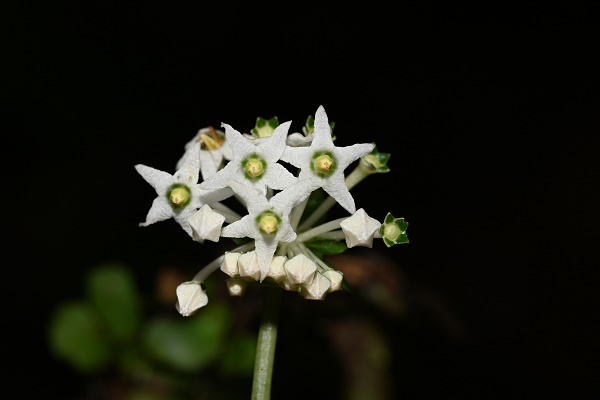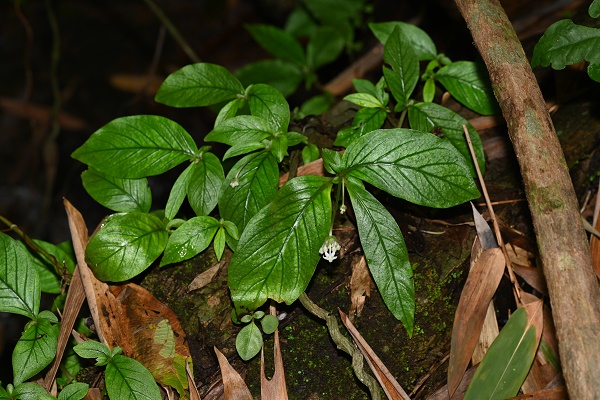The genus Argostemma comprises approximately 200 species of small perennial herbs, primarily distributed in the Paleotropics with a concentration in Southeast Asia. These plants are typically lithophytic (growing on rocks) and are highly sensitive to habitat changes, often having very restricted distributions.
During a field expedition in southern Myanmar in August 2024, researchers from Xishuangbanna Tropical Botanical Garden (XTBG) of the Chinese Academy of Sciences identified an unknown plant belonging to the genus Argostemma, a group of small succulent herbs in the Rubiaceae family. After careful morphological studies, the researchers confirmed that the specimen represents a species new to science.
The new species is named Argostemma wardii, in honor of British botanist Francis Kingdon-Ward, recognizing his significant contributions to flora exploration in Myanmar.
Argostemma wardii is a perennial lithophytic herb, most morphologically similar to Argostemma kurzii. However, it can be distinguished by its thinly papery, spatulate to elliptic leaves, significantly larger stipules, typically single inflorescences with shorter stalks, fleshy calyx, and larger flowers with subtle venation.
Currently, Argostemma wardii is known only from its type locality in Kun Chaung Reserve Forest in Yegyi Township, Pathein District, Ayeyarwady Region, southern Myanmar. A single small population of fewer than 100 individuals was found growing on mossy rocks near a stream.
Due to the limited information on its population size and the challenges in assessing threats, the researchers provisionally classified the conservation status of the new species as "Data Deficient" (DD) according to the IUCN Red List criteria.
“The discovery of Argostemma wardii brings the total number of Argostemma species recorded in Myanmar to fourteen, four of which are now considered endemic,”said TAN Yunhong of XTBG.
The new species was published in Phytotaxa.

Argostemma wardii (Image by TAN Yunhong)

Argostemma wardii (Image by TAN Yunhong)
Published: 23 Sept. 2025


